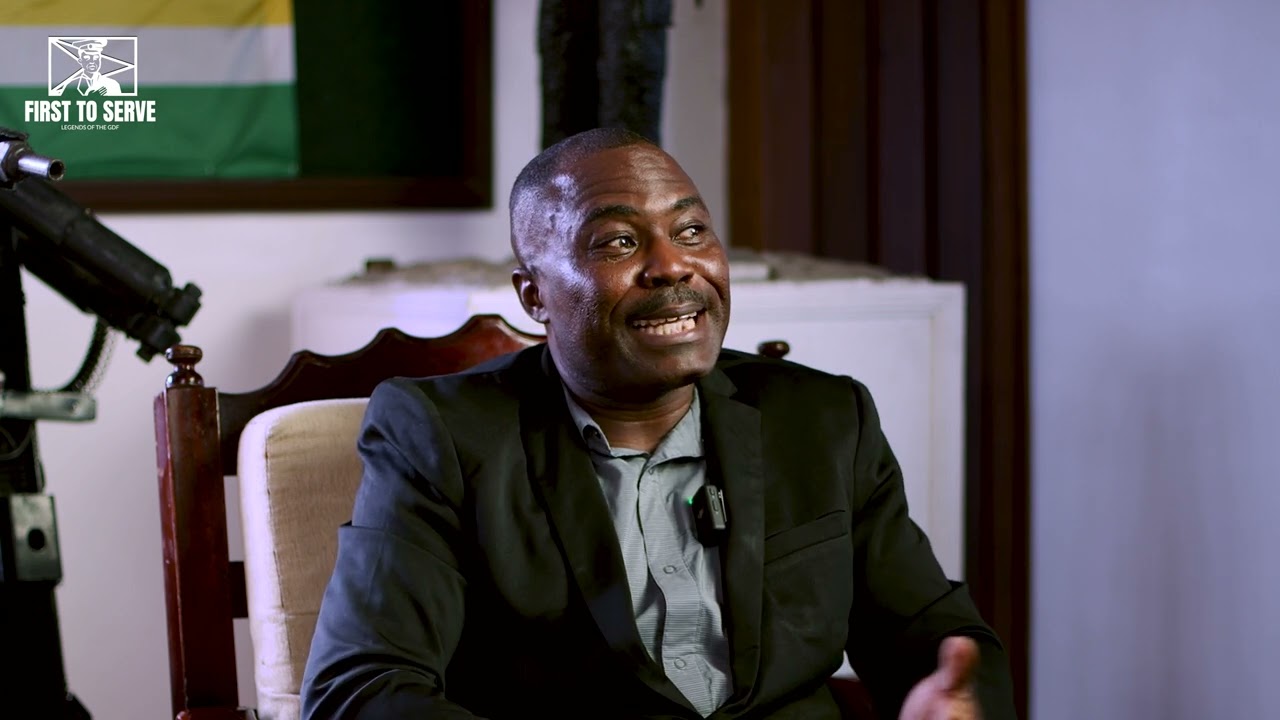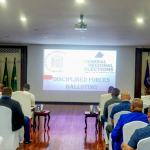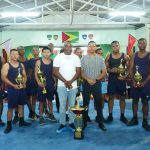In the vast and verdant reaches of the Cooperative Republic of Guyana, the Guyana Defence Force stands as sentinel, not only of our borders, but of our collective hopes and security. Yet beneath the regimented drills and parade-ground precision lie human stories of struggle, perseverance, and quiet triumph. Among these, few resonate as deeply as that of Warrant Officer Class 1 (Ret’d) Roel Remington Patrick Rodney—a man whose journey epitomises the transformative power of service and sacrifice.
Rodney’s path to military life was neither planned nor romanticised. Confronted with the harsh economic realities of adolescence, he left school early to ease the burden on his mother. No grand plan beckoned—only necessity. But life’s uncharted turns often hold the seeds of destiny. A chance invitation from his uncle to visit the military base introduced him to Sergeant Major Herbert MacPherson, whose quiet insistence eventually wore down Rodney’s reluctance. Even then, his acquiescence to sit the recruitment exam was little more than a courtesy. But the result? He topped the test. And in that moment, possibility began to eclipse resignation.
His enlistment in 1993 marked the start of a 31-year, 7-month journey of continuous self-overcoming. From initial training to advanced artillery assignments, Rodney quickly realised that military life was not simply about obeying orders but confronting personal fears. When selected for instructor duty at the training corps, he was paralysed by self-doubt. He did not see himself as a teacher, let alone a leader of men. Yet through preparation and encouragement—from mentors like Warrant Officer Class 1 Clarence Welch—he transformed anxiety into mastery, delivering lessons with a clarity that would shape the next generation of officers. “After the first lesson,” he would later recall, “I realised that training was my calling.”
His leadership roles grew in gravity. As Base Sergeant Major and later Force Sergeant Major, he managed the complex administrative, logistical, and human challenges of a diverse and sprawling organisation. He understood the burdens of command, the tensions of enforcing discipline while nurturing morale, and the importance of maintaining standards in an institution where mistakes can cost lives.
Yet Rodney’s career was not confined to Guyana’s borders. In 1994, he volunteered for duty in Haiti at a time when many hesitated, terrified by reports of instability and violence. His early days there were marked by frustration and cultural friction, culminating in a reassignment to operational duty with the Trinidadian platoon and, subsequently, to work alongside U.S. Special Forces in the fraught pre-election environment of Port-au-Prince. Amid roadblocks, gunfire, and civil unrest, he learned that leadership is forged not in comfort but in the crucible of real danger.
Even in the twilight of his career, the challenges did not relent. In 2018, Rodney was unexpectedly posted to the Coast Guard—a domain entirely foreign to his artillery-honed expertise. He resisted, citing his ignorance of maritime operations. But leadership offered no refuge for excuses. Ordered to take the post, he did so. And when sent to California for advanced Coast Guard training, he struggled, even failing his first exam. Many would have quit or found someone to blame. Rodney did neither. Instead, he turned to the unlikeliest of allies—Google. Through relentless self-directed study, he not only passed but earned recognition as the Most Improved Student. This episode laid bare a simple truth: resilience is not innate; it is chosen, again and again, often when no one is watching.
His tenure was also marked by innovation. When U.S. partners proposed hosting a Jungle Symposium in Guyana, Rodney seized the opportunity. Despite his own admitted lack of deep jungle expertise, he organised and delivered an event that brought together military professionals from eleven countries—projecting Guyana onto the international stage and proving that leadership is as much about humility and collaboration as it is about command.
Rodney’s reflections are striking for their honesty. He does not gloss over the fear, uncertainty, or failures. Nor does he boast of his many academic and professional achievements, accumulated through years of unrelenting effort. Instead, he offers them as evidence of what is possible for others who might follow. He reminds today’s non-commissioned officers and warrant officers that the Guyana Defence Force is not merely a job but an institution of opportunity. He challenges young recruits to see beyond the pay packet and grasp the deeper purpose of service—to their families, their country, and themselves.
In his own words: “Joining the Guyana Defence Force will always be the best opportunity. Service to the nation is always the best service.”
This is not the story of a man who set out to be a soldier-hero. It is the story of a man who, facing hardship and the limits of his own courage, chose to grow anyway. Who embraced discomfort. Who failed and tried again. Who led by example when others were watching—and, crucially, when they were not.
Rodney’s legacy is not merely in the medals earned or ranks attained. It is etched in every soldier he trained, every challenge he met head-on, and every young Guyanese he inspires with the reminder that greatness is rarely born of grand design—but always of patient, unglamorous perseverance.
For those who wear the uniform today, and for those who will tomorrow, his story is both challenge and promise: that the truest victories are won not over enemies, but over the self. That even in a world of uncertainty, there is purpose in service. And that from the most unassuming beginnings can rise the most extraordinary leaders.








